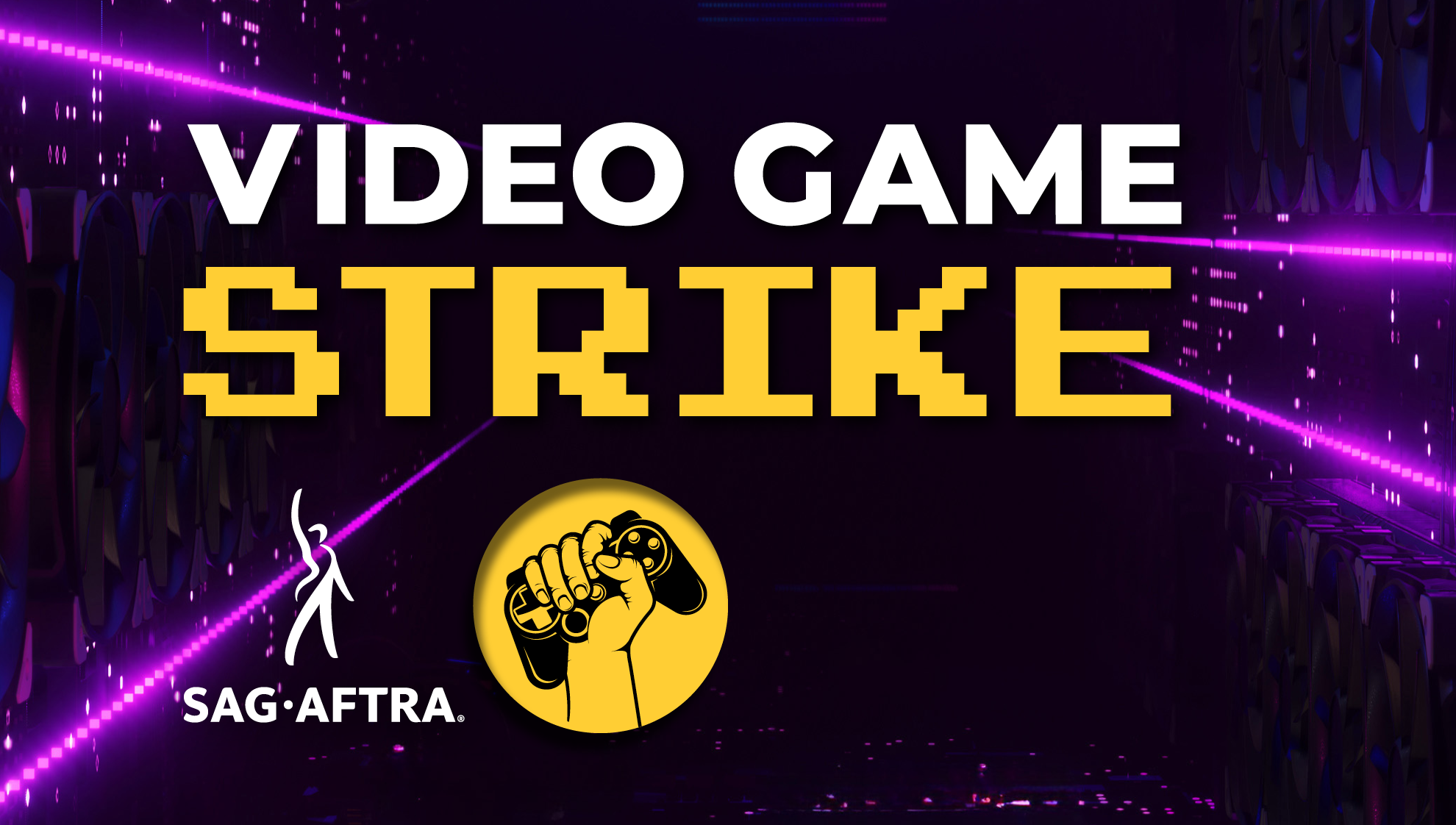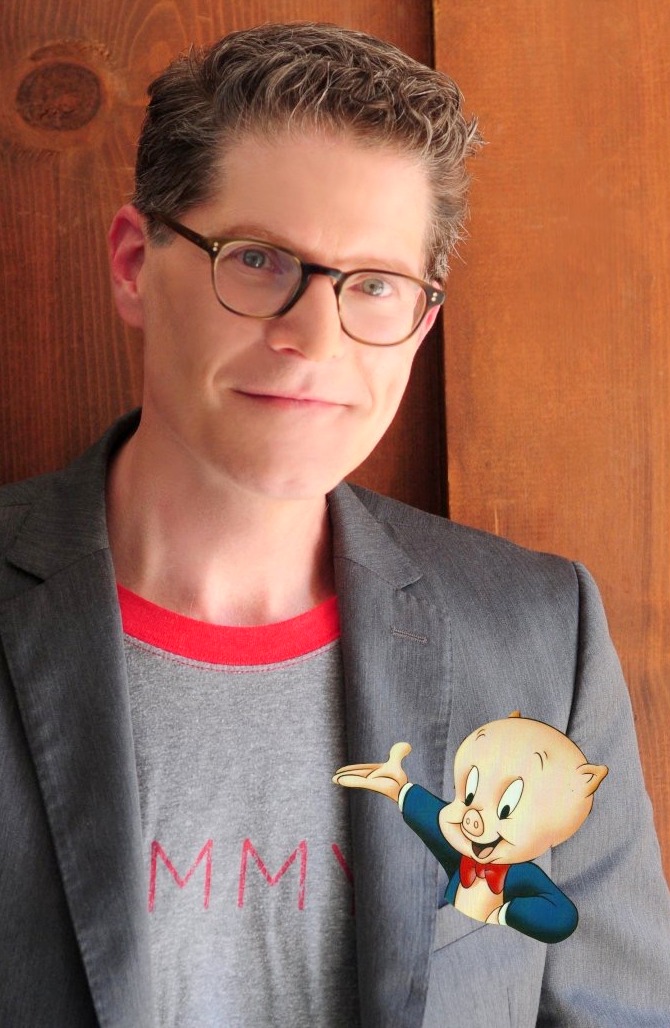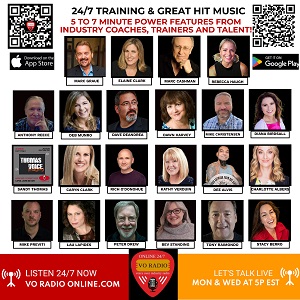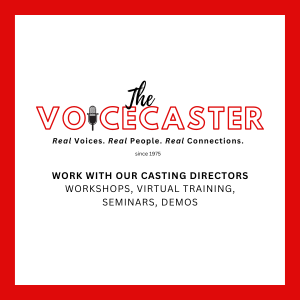|
VIDEO GAME STRIKE
In negotiations for the Interactive Media Agreement, SAG-AFTRA wants members to be able to consent to a company's use of their past union performances in the creation of new union content via AI (artificial intelligence). Until this is settled, the voice over industry's two associations also urge both union and non-union voice actors to shun video game work: NAVA (National Association of Voice Actors): "NAVA advises ALL voice actors, both union and non-union, to stand with SAG-AFTRA in the fight for clear and definitive AI protections in video game contracts. We advise all actors to only work on projects that include enforceable AI protections. The safest projects are those under fully enforceable union contracts." NAVA is also creating a fund to help voice actors who experience financial hardship during the new strike. WoVO (World-Voices Organization): "World-Voices Organization supports ALL voice talent in defense of the proper usage of and compensation for their intellectual property (i.e., their voice). WoVO strongly recommends that any and all talent (WoVO members or not/union members or not) decline to work on any struck projects until a fair and equitable agreement has been reached by SAG-AFTRA." BOB BERGEN EXPLAINS THE ISSUE ...
Bob, are you involved in negotiations for the Interactive Media Agreement? If so, can you comment on the current status of this? I am not. Although, I did co-chair the recent TV/Basic Cable Animation Contract negotiation, a contract I have served as a co-chair the past four contracts (12 years) and a committee I have served since the early ‘90s. The Animation negotiation, as did the TV/Theatrical negotiation, achieved the same AI protections that our Interactive Game negotiators are seeking. Simply put, that is consent when a company seeks to use past union performances and through generative AI create new union content. And, we want applicable compensation. To give you an idea of how the new animation contract achieved an aspect of this, if our English dialogue in an animated series is used to generate foreign language versions of our shows, we will now get applicable residuals. This is huge in the animation world, as previously studios have hired foreign language speaking actors to dub our shows. Now, to date I have had no shows use this technology, and I am on a slew of shows. But this AI technology exists today, and it is good. So I, as well as my fellow negotiators wanted to be ahead of tech trend and prepared for when this technology is commonly used. Now, this also goes both ways. There will come a day when this technology will be used in, say, a Japanese anime cartoon and through generative AI, the producers will be able to create English versions of the original Japanese actor’s performances. But the tide of technology always has and always will work for and against. It is up to everyone to adapt. Silent films put Vaudeville performers out of work. But those stage performers who wanted to stay relevant embraced silent film. Same for silent film actors who had to embrace sound. Etc. What's at stake for voice actors in the outcome of the current negotiation? The ability to have ethical and financial control of our past union work. Each of our most recent contract negotiations have achieved gains in AI. Interactive games must as well. All previous tech advances, from sound to color, film to television, etc., once established were here to stay. So is AI. It is going to be used in all aspects of an actor’s life and career. Which means we as union actors must have guaranteed protections and profit sharing with AI as we do with all aspects of how our past work when it is used for everything from a rerun to a lift, reuse, etc. How would you feel if your voice is captured by AI and used in a video game without your permission? This is not acceptable. Negotiations on this interactive contract began almost two years ago, well before TV/Theatrical and WGA strikes. Well before our Animation negotiations. Well before the recent IATSE deal. All of these contracts achieved AI gains. Why haven’t the game buyers followed suit? Because they are well aware that they have the technology and desire to use our past work, be it VoiceOver or Performance Capture and through AI create new content. Just imagine if a character you once portrayed is generated through AI to say dialogue that you find unethical. A job you might have passed or even auditioned for, as you found ethical issues with the content. There are actors who prefer to not work on a game that has gun violence. Or, they do not want their Performance Captured work to have nudity. If we do not demand consent, studios and producers will have the right to use our past work any way they want. And they will have the ability to achieve future financial gains without compensating the original actors. And eventually, they will have enough banked content to continue creating new content without ever hiring another union performer. What's your advice for union and non-union voice actors regarding this? We saw the union VoiceOver industry begin to erode with the advent of the internet. With every tech disruption since the creation of SAG in 1933, from silent film to sound, black and white to color, film to tv, network tv to cable, the work stayed union. It was the internet that was the catalyst to take the VO industry away from the major markets and the union, to the point where voice over today is 80% non-union. As I saw this happening, and with every animation vo workshop I taught around the country, I preached…no, I begged... actors to resist working non-union. And, I used the same examples of why they should resist that have been voiced for decades: They will be losing out on guaranteed minimums and benefits. Taking this work will just damage their fellow actors and the industry as a whole. Etc. Same song and dance that had swayed the majority of professional actors to insist that when they worked that work would be union - until the internet. But I also warned that some day, there will come a technology that will also erode the non-union VoiceOver industry. No way of knowing what that technology will be or when we will see it. But the tide of technology is a constant. And you cannot stop that tide. Well, that tide has now caught up with the non-union voice over industry. Just like 80% of the VO industry today is non-union, I predict that within two to five years, 80% of the non-union voice over industry will be AI generated. AI creators have years of banked material to work with. Much of this came from the non-union VO actors, as AI creators used P2P auditions and jobs to train AI. I’m on The AI Task Force at The Television Academy and I have seen and heard some pretty amazing AI generated work. I asked the content creators where they got the original audio to train and create this new content. They said, “From years of P2P non-union actors." There’s a lot of irony in all of this. Those who were responsible for the erosion of the union VO industry are also responsible for the erosion of their own non-union VO industry. This is why SAG-AFTRA must achieve AI consent and profit sharing in our Interactive Agreement. Why we must achieve these same gains in our upcoming commercial contract, and all subsequent contracts. We need federal legislation to protect the masses regarding AI, as well. Protections far beyond SAG-AFTRA contracts. God bless Tim Friedlander and his NAVA team as they are doing amazing work on behalf of this. But when it comes to the VO industry today, the only guaranteed AI protection and profit sharing will be when working union. I do predict that a good percentage of professional VO actors will reverse course and come back to the union. At least those who wish to continue a career in VO. Even though there are a handful of non-union actors insisting on AI protection contractual riders, like the one provided by NAVA, there are too many out there who won’t insist on these protections. This mirrors the erosion of the union VO industry and the growth of the non-union vo industry. It all comes down to value. Too many will find the value in taking a non-union VO gig without AI protections, just like they did when they found value in a non-union VO gig that did not come with health, pension and residual benefits. None of this is new. It’s just now. My advice to all actors, union or non, is to stay away from working on ANY games during the duration of our strike. UNLESS it is for a game company that has signed the new Tiered-Budget Independent Interactive Media Agreement, the Interim Media Agreement or the Interim Interactive Localization Agreement. These all offer AI protections for union performers. To the non-union VO actor out there, as tempting as it is to take advantage of an opportunity right now, please refrain from working on any game, even those that are not a part of this strike. There’s power in numbers. If the planets align, you will benefit from our strike as well. We are setting a precedent for all actors. If your goals are to continue working as a voice actor in games, with our win will come more and more union game opportunities. As I mentioned before, I predict a growth in union membership. That means you! Continuing to work non-union will eventually see the majority of your opportunities dry up as buyers will be creating new content with your past non-union work through generative AI. FOR MORE INFO ... For more from SAG-AFTRA about the video game strike, visit www.SAG-AFTRA.org For more about Bob Bergen and his fascinating voice over career, visit www.BobBergen.com |
|
|
Tell Us What YOU Think!
Please Note: Since we check for spam, there will be a slight delay in the actual posting of your comment.
Comments
No comments have been posted yet. Hurry, and you could be the first!
Get your bi-weekly dose here ... all things VO!
Inspiring interviews help your VO career
With Sean Daeley and Paul Stefano - check it out!
On Michael Langsner's Voice-Over Roadmap Podcast
As of the NEW website launch, 03/22/2012

 (VOXtra) - Picketing has begun in a new SAG-AFTRA strike targeting the use of AI in video games - the outcome of which will have major impact on the careers of voice actors in that genre.
(VOXtra) - Picketing has begun in a new SAG-AFTRA strike targeting the use of AI in video games - the outcome of which will have major impact on the careers of voice actors in that genre. For deep background and perspective on this, VoiceOverXtra interviewed by email legendary voice actor
For deep background and perspective on this, VoiceOverXtra interviewed by email legendary voice actor 



.png)




click for new article alerts